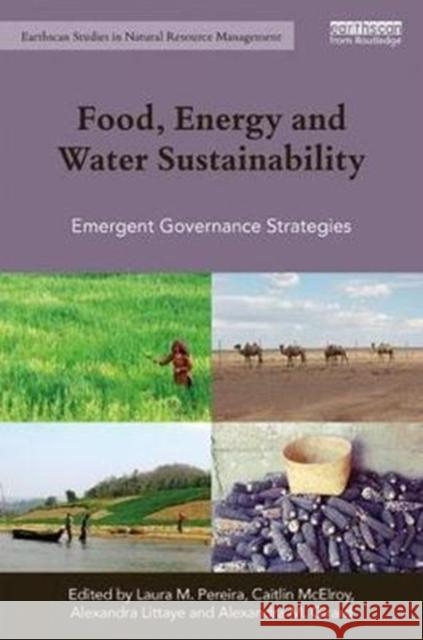Food, Energy and Water Sustainability: Emergent Governance Strategies » książka
Food, Energy and Water Sustainability: Emergent Governance Strategies
ISBN-13: 9781138904095 / Angielski / Twarda / 2017 / 278 str.
Food, Energy and Water Sustainability: Emergent Governance Strategies
ISBN-13: 9781138904095 / Angielski / Twarda / 2017 / 278 str.
(netto: 711,95 VAT: 5%)
Najniższa cena z 30 dni: 654,86
ok. 30 dni roboczych.
Darmowa dostawa!
Society faces an uncertain future where socio-ecological changes are creating pressure for reformed models of resource governance, particularly at the intersections of civil society, public and private sector resource management. This volume presents the growing diversity of collaborations formed between various governance actors and analyses these emergent governance structures' ability to cope with the complexity of future challenges across food-energy-water systems as both separate sectors and an integrated nexus. The authors argue that corporate social responsibility (CSR) was a short-term fix which enabled corporations to continue externalising the deeper societal and environmental concerns embedded within their business practices. Increasingly, it is now being recognised that corporate strategy can no longer focus exclusively on profit maximisation without taking into account the impacts of these business practices. Case studies, including from Africa, Asia, Europe and Latin America, present examples of corporations working on strategies that do not externalise social and environmental responsibility, but incorporate these as key outcomes of their business model. It is shown that businesses are increasingly dependent on public sector governance and support structures, but also subject to their regulations. Similarly, governments at all levels are in need of the innovation, capital, and dynamism of private and market systems. The book consolidates knowledge of what has worked so far to improve natural resource governance around the world. It is divided into sections that explore: the changing boundaries of civil society, private and public sector governance; the use of new technologies in addressing these challenges; the dynamic scales of governance; and the trade-offs and ethics of operating these systems.











